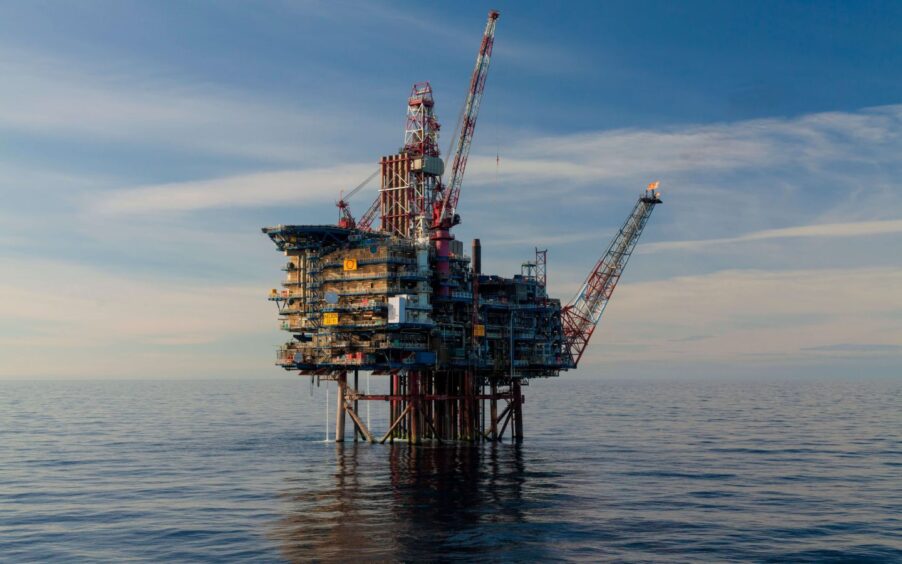
The “reactionary” windfall tax is harming net zero, deals and production, warns Viaro Energy CEO Francesco Mazzagatti.
It is well recognised by economists that an intervention in a complex system tends to create unanticipated and often undesirable outcomes. This has become known as the law of unintended consequences. What we are seeing unfold in the UK energy market today with the windfall tax is a prime example of just this paradigm. In order to find a path towards a more sustainable future, we need to change the current conversation. But first, we must consider the far-reaching implications of reactionary policy implementation.
Since the Government first introduced the Energy Profit Levy (EPL) in May 2022, the taxes on the oil & gas upstream sector have risen to 75% in 2023. The EPL is primarily aimed at the largest North Sea operators, which registered record profits in the aftermath of the Ukrainian war. With the windfall tax, companies such as Harbour Energy, TotalEnergies, BP, and Shell, among others, each reported having to pay close to £1bn in taxes.
In response, they initiated a trend of decreased North Sea investments in late 2022, which continues to date. Many companies are leaving the North Sea completely, while others are slowing down or stopping further investments. Earlier this year, OEUK estimated that 90% of offshore firms are cutting billions-worth of spending.
Being a blanket tax that does not account for company size or scale of its operations, the EPL primarily hurts smaller independent firms. The operations of oil & gas producers are contingent on the financial support of traditional capital providers, which factor in long-term tax burden projections. As a direct consequence of the radical EPL measures, imposed in quick succession and without a proper transition, banks are slashing their support for North Sea firms.
Apart from limiting our ability to secure more favourable financing deals for future projects, this also has an effect on existing ones. There are companies that agreed to contingents payments during M&A transactions without accounting for the possibility that taxation could double. They will now be required to pay both the tax and the contingent, a sum that exceeds their earnings and is bound to have a dramatic effect on their balance sheet.
Most importantly, the contradictory effects of the windfall tax on the UK’s net-zero targets have been pointed out repeatedly. It is having a knock-on effect on employment, leading to considerable job losses. It also increases reliance on fossil fuel imports, a significantly more CO2 intensive alternative to local transition energies that puts our energy security at risk at a time of huge geopolitical instability. Finally, with companies pulling out of existing North Sea investments because it is no longer cost-effective to drill, oil & gas assets are not used to full capacity or disposed of as per ESG standards, at a serious cost for the environment.
As investment slows and daily production decreases, this will ultimately signify a loss in tax revenue for the Government. A prime example of unintended consequence in action, and a direct result of reactionary policies to the most urgent pressures at hand. This is not only counter-productive for the UK’s wellbeing, but also creates friction where collaboration is needed to move forward.
Above all, the fact that the government has chosen to resolve economic challenges by introducing additional taxation simply because it deems a sector “too profitable” should not be overlooked in this. It is not only a patchwork solution without long-term benefits that is already causing additional issues – it is also misuse of power with much more serious implications for the future of the Western society.
No system on any scale can drive progress without keeping the different stakeholders in check when it comes to promoting their interests at the detriment of its long-term sustainability. It is precisely this kind of collaboration between oil & gas producers and investors around shared goals in the energy transition that has enabled us to ensure continued local investments despite these challenges. It is why we have been able to secure a steady cashflow in support of E&P operations that has allowed the UK to rely on natural gas and renewables as its main energy sources in 2022, a time when a shortage in local supply resulted in increased coal use across Europe.
We need to create the same kind of collaborative environment among government officials, regulators, as well as upstream oil & gas and renewables producers within a proper framework of checks and balances. As a first step, we should initiate roundtable discussions around the key drivers of shared net-zero goals – technological innovations, decreased dependency on imported fossil fuels, maximization of local sources of transition energies, and a steady shift to renewables. The accompanying regulations and policies should be in support of these goals, and not obstacles to be worked around while each party seeks to reconcile their financial wellbeing with their responsibilities in the transition.
Recommended for you

 © Supplied by Viaro Energy
© Supplied by Viaro Energy